-
 Bitcoin
Bitcoin $119,448.2396
0.27% -
 Ethereum
Ethereum $2,992.9919
0.78% -
 XRP
XRP $2.9074
1.58% -
 Tether USDt
Tether USDt $1.0001
0.00% -
 BNB
BNB $687.9097
-0.40% -
 Solana
Solana $161.5804
-0.47% -
 USDC
USDC $0.9998
0.01% -
 Dogecoin
Dogecoin $0.1948
-2.10% -
 TRON
TRON $0.3013
-0.08% -
 Cardano
Cardano $0.7286
-3.16% -
 Hyperliquid
Hyperliquid $47.3153
-3.81% -
 Stellar
Stellar $0.4543
-9.79% -
 Sui
Sui $3.8809
5.63% -
 Chainlink
Chainlink $15.6262
-0.55% -
 Hedera
Hedera $0.2368
-5.31% -
 Bitcoin Cash
Bitcoin Cash $501.2030
-0.80% -
 Avalanche
Avalanche $21.0650
-1.43% -
 UNUS SED LEO
UNUS SED LEO $9.0006
-0.39% -
 Shiba Inu
Shiba Inu $0.0...01310
-1.90% -
 Toncoin
Toncoin $3.0040
1.56% -
 Litecoin
Litecoin $93.8936
-1.20% -
 Monero
Monero $341.8918
1.27% -
 Polkadot
Polkadot $3.9087
-3.05% -
 Uniswap
Uniswap $8.9599
4.78% -
 Dai
Dai $0.9999
0.02% -
 Ethena USDe
Ethena USDe $1.0005
-0.02% -
 Bitget Token
Bitget Token $4.3954
-0.14% -
 Pepe
Pepe $0.0...01207
-2.26% -
 Aave
Aave $314.5223
1.72% -
 Bittensor
Bittensor $408.6988
2.76%
How to avoid high gas fees
To save on blockchain gas fees, transact during off-peak hours, use alternative networks like Polygon or BSC, and adjust wallet gas settings manually.
Jul 14, 2025 at 04:42 am
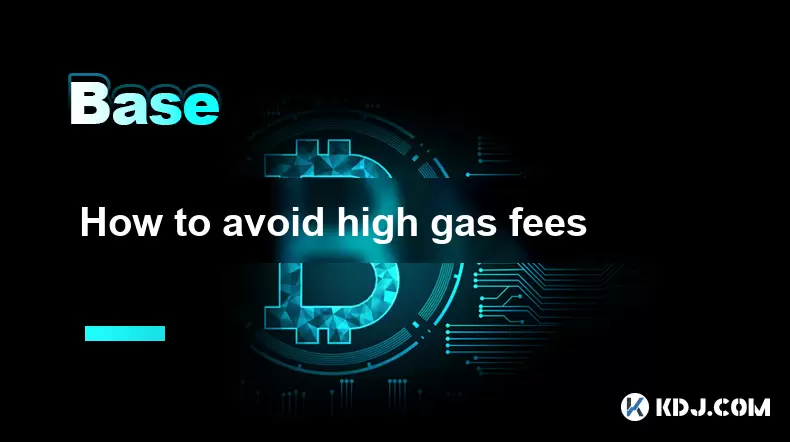
Understanding Gas Fees in Blockchain Networks
In blockchain networks like Ethereum, gas fees refer to the cost users pay to execute transactions or smart contracts. These fees are calculated based on the computational power required for each operation. The gas price is determined by supply and demand; when more people use the network, gas prices rise. Understanding this mechanism is crucial for anyone looking to avoid high costs.
Gas fees are not fixed and can fluctuate significantly within minutes. Users must monitor these changes using tools like Etherscan or GasNow to make informed decisions about when to send transactions.
Choosing the Right Time to Transact
One of the most effective ways to reduce gas fees is to transact during off-peak hours. Network congestion plays a major role in determining gas prices. During periods of high activity—such as when new NFT drops or DeFi yield farming events occur—gas prices spike dramatically.
- Use gas tracking tools like ETH Gas Station or GasTracker to analyze real-time gas price trends.
- Schedule transactions during early morning hours (in UTC) when global network usage tends to be lower.
- Avoid weekends and holidays, as many traders and developers are active during these times.
Selecting Alternative Blockchains with Lower Fees
If avoiding high fees on Ethereum proves difficult, consider migrating to alternative blockchains that offer similar functionalities at a fraction of the cost. Chains like Binance Smart Chain (BSC), Polygon, and Avalanche have gained popularity due to their low transaction fees and fast processing times.
- Research decentralized applications (dApps) available on these chains before transferring assets.
- Use cross-chain bridges carefully to move funds between networks. Always verify bridge security and transaction costs.
- Maintain separate wallets for different chains to prevent accidental transfers to incompatible addresses.
Optimizing Transaction Parameters
When sending transactions on Ethereum or other EVM-compatible chains, users can manually adjust gas settings to potentially save costs. By default, wallets often suggest higher gas prices to ensure faster confirmations. However, users can tweak these values to suit their urgency levels.
- Set a custom gas limit in your wallet. Most standard transfers require around 21,000 gas units.
- Adjust gas price (Gwei) to a value slightly above the current average rather than paying premium rates.
- Use "slow" or "economic" options in wallets like MetaMask if you don’t need immediate confirmation.
Leveraging Layer 2 Solutions
Layer 2 scaling solutions such as Arbitrum, Optimism, and zkSync allow users to perform transactions off-chain while benefiting from the security of the underlying blockchain. These solutions drastically reduce fees by batching multiple transactions into one.
- Connect to supported dApps on Layer 2 platforms through compatible wallets like MetaMask or Argent.
- Bridge funds to Layer 2 via official portals provided by the solution’s team.
- Monitor withdrawal times as moving funds back to Layer 1 may take several hours or even days depending on the protocol.
Frequently Asked Questions
Q: What happens if I set too low a gas price?
A: If your transaction's gas price is below the network average, it may get stuck in the pending queue or rejected by miners. You can speed it up later by resubmitting with a higher gas price.
Q: Are gas fees refundable?
A: No, gas fees are non-refundable. Even if a transaction fails, the network still consumes computational resources to process it, so fees are charged accordingly.
Q: How do gas tokens work and can they help reduce costs?
A: Gas tokens like Chi or GST2 allow users to store gas when prices are low and use it later when prices are high. They act as a form of gas discount during peak times but require careful management.
Q: Can I cancel a transaction once submitted?
A: Yes, you can cancel a pending Ethereum transaction by sending another transaction with the same nonce and a higher gas price. This effectively replaces the original transaction.
Disclaimer:info@kdj.com
The information provided is not trading advice. kdj.com does not assume any responsibility for any investments made based on the information provided in this article. Cryptocurrencies are highly volatile and it is highly recommended that you invest with caution after thorough research!
If you believe that the content used on this website infringes your copyright, please contact us immediately (info@kdj.com) and we will delete it promptly.
- TAC Mainnet & Native Token Launch: A New Era for Telegram?
- 2025-07-15 18:50:12
- Ripple's RLUSD Stablecoin Eyes EU Expansion: Luxembourg Launch Under MiCA
- 2025-07-15 18:50:12
- Whales, DeFi Tokens, and DOGE: A New Era of Crypto Investments?
- 2025-07-15 19:10:12
- Bitcoin Yield Takes Center Stage: Function's $10M Raise & Galaxy Digital's Bet
- 2025-07-15 19:10:12
- ERC-20 Tokens & Ethereum Treasuries: GameSquare's Bold Move
- 2025-07-15 19:15:12
- ICO, BlockchainFX, Crypto Investment: The Buzz in the Big Apple
- 2025-07-15 19:15:12
Related knowledge
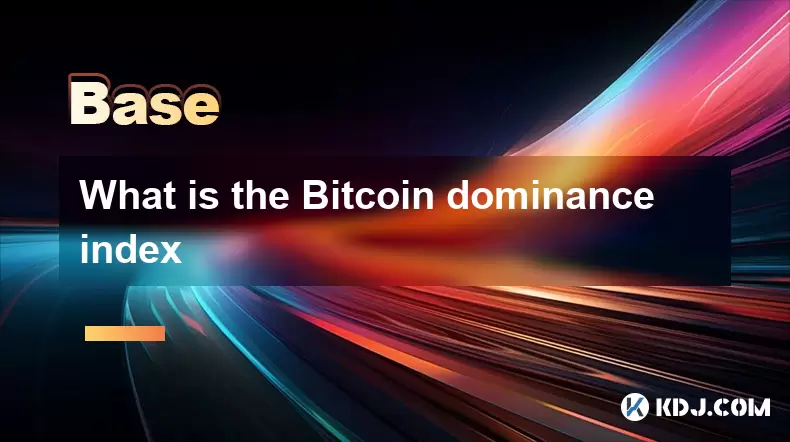
What is the Bitcoin dominance index
Jul 12,2025 at 10:35pm
Understanding the Bitcoin Dominance IndexThe Bitcoin Dominance Index, often abbreviated as BTC.D, is a metric used to measure Bitcoin's market capital...
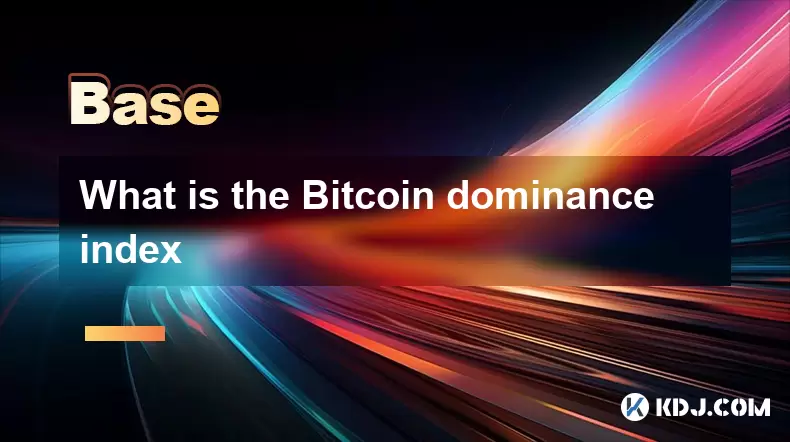
What is the Bitcoin dominance index
Jul 11,2025 at 04:29am
What is the Bitcoin Dominance Index?The Bitcoin Dominance Index is a metric used to gauge Bitcoin's market capitalization relative to the total market...
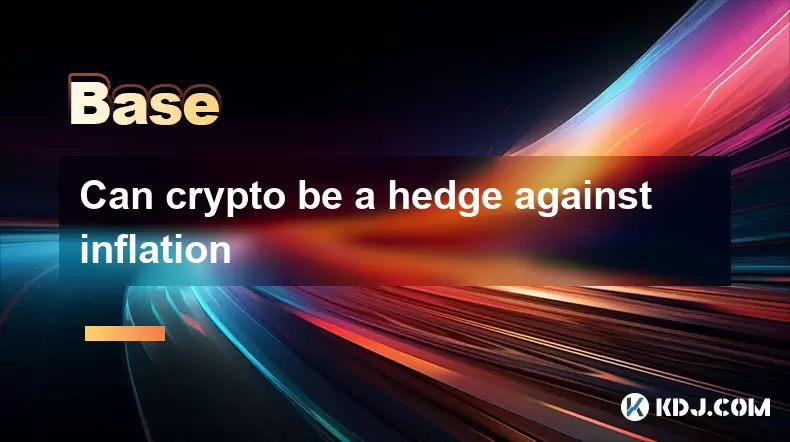
Can crypto be a hedge against inflation
Jul 14,2025 at 12:21am
Understanding the Concept of Hedging Against InflationInflation refers to the general increase in prices and fall in the purchasing value of money ove...
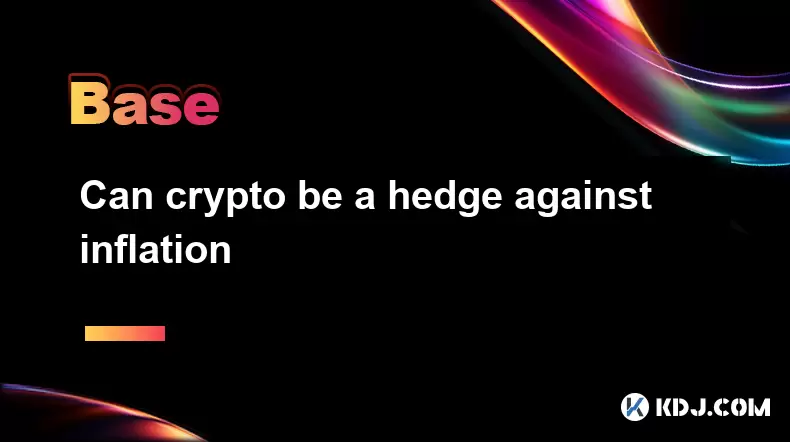
Can crypto be a hedge against inflation
Jul 12,2025 at 12:07pm
Understanding the Role of Blockchain in Decentralized Finance (DeFi)Blockchain technology serves as the backbone of decentralized finance, offering a ...
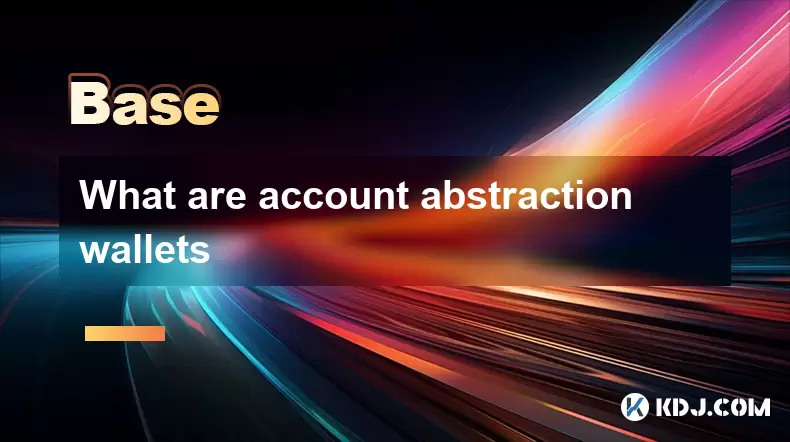
What are account abstraction wallets
Jul 13,2025 at 01:43am
Understanding the Concept of Account AbstractionAccount abstraction is a term frequently used in the Ethereum ecosystem, particularly within discussio...
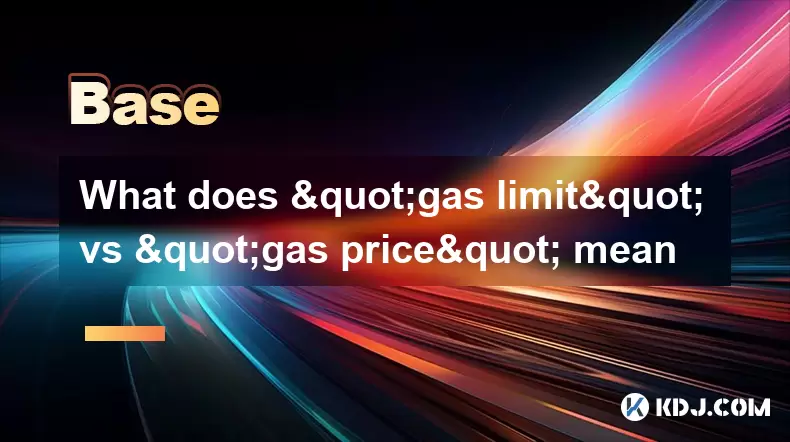
What does "gas limit" vs "gas price" mean
Jul 13,2025 at 04:00am
Understanding the Basics of Gas in Blockchain TransactionsIn the Ethereum and other EVM-compatible blockchains, every transaction requires computation...

What is the Bitcoin dominance index
Jul 12,2025 at 10:35pm
Understanding the Bitcoin Dominance IndexThe Bitcoin Dominance Index, often abbreviated as BTC.D, is a metric used to measure Bitcoin's market capital...

What is the Bitcoin dominance index
Jul 11,2025 at 04:29am
What is the Bitcoin Dominance Index?The Bitcoin Dominance Index is a metric used to gauge Bitcoin's market capitalization relative to the total market...

Can crypto be a hedge against inflation
Jul 14,2025 at 12:21am
Understanding the Concept of Hedging Against InflationInflation refers to the general increase in prices and fall in the purchasing value of money ove...

Can crypto be a hedge against inflation
Jul 12,2025 at 12:07pm
Understanding the Role of Blockchain in Decentralized Finance (DeFi)Blockchain technology serves as the backbone of decentralized finance, offering a ...

What are account abstraction wallets
Jul 13,2025 at 01:43am
Understanding the Concept of Account AbstractionAccount abstraction is a term frequently used in the Ethereum ecosystem, particularly within discussio...

What does "gas limit" vs "gas price" mean
Jul 13,2025 at 04:00am
Understanding the Basics of Gas in Blockchain TransactionsIn the Ethereum and other EVM-compatible blockchains, every transaction requires computation...
See all articles

























































































